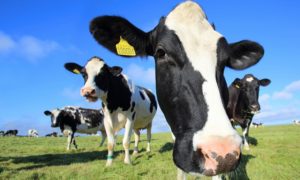Derrick Jensen Resistance Radio—June 16, 2019 - Audio (49 min)

Paul Ehrlich -
Bing Professor of Population Studies Emeritus and President of the Center for Conservation Biology at Stanford University.
Paul R. Ehrlich has been a household name since the publication of his 1968 bestseller, The Population Bomb. He is Bing Professor of Population Studies Emeritus and President of the Center for Conservation Biology at Stanford University.
Ehrlich is a member of the National Academy of Sciences and a recipient of the Crafoord Prize (an explicit substitute for the Nobel Prize in fields of science where the latter is not given), the Blue Planet Prize, and numerous other international honors. He investigates a wide range of topics in population biology, ecology, evolution, human ecology, and environmental science. Much of his current effort is focused on the mechanisms of human cultural evolution and ways of directing that evolution to ameliorate the human predicament.
13:50 Passenger pigeon ….connection to lime disease
15:40 Cod fish crash.
18:00 Sap suckers > Aspen tree > swallows.
20:45 Interdependency of species & lack of insight by
mainstream news.
25:30 Ability to recongnize patterns as a sign of
intelligence - Where did humans go wrong?
41:00 Book “Jaws” - The Story of a Hidden Epidemic.
Teeth issues and ramifications for our children.
43:40 Cel phones and the rise of near sightedness.
45:50 Social side - Inequities regarding women’s
rights and the ramificaitons.
46:45 Nuclear war issues


